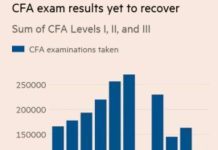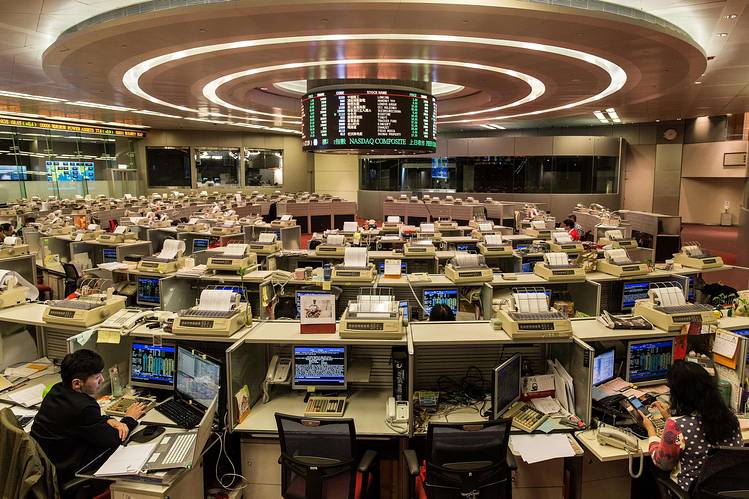The Hong Kong Stock Exchange is an important exchange to trade on with good reason. Hong Kong has transformed tremendously over the decades, and it is currently the fourth largest stock exchange in the world. It is anticipated that it will become the third largest before too long. The reason for this? There is significant demand for Chinese shares and there are massive investments that are being made from mainland China. As argued by Prableen Bajpai of Investopedia, Milton Friedman once famously said:
“If you want to see capitalism in action, go to Hong Kong.”
Hong Kong vs China
Never was a truer word spoken, it seems. Yet it can be difficult for foreign investors to understand how they can trade on the Hong Kong Stock Exchange. There are both direct and indirect routes for doing so, which are helpful to be aware of. It is useful prior to explaining these to understand that since the British ceded Hong Kong to China in 1997, Hong Kong and China have used two different systems, even though they are one country. Hong Kong is set up as a special administration and can actively be capitalistic. It manages a range of areas for itself, such as tax, trade and foreign exchange, as well as currency. Hong Kong has its own Hong Kong Dollar. As of 2014 a Shanghai-Hong Kong Stock connect was set up, and this offers a cross border channel for investments.
How to trade on the Hong Kong Stock Exchange
1. Exchange -Trading funds
There are a number of ways to trade on the Hong Kong Stock Exchange. One is exchange-trading funds. Exchange traded funds are thought to be the most simplistic way to trade. There are a variety of different funds to choose from, such as the iShares MSCI Hong Kong Index Fund, the Hong Kong AlphaDEX Fund and the IShares MSCI Hong Kong Small Cap ETF. The first is almost two decades old and is spread across diversified assets and holdings, worth $3.57 billion. The second is only three years old and this tracks the Hong Kong Stock Markets. It has assets around the value of $177 million. The third focuses on small-cap stocks – in total it has approximately 90 stocks, and $9.1 million of assets being managed.
2. ADRs
Another approach that is for US investors is selecting Hong Kong stocks that are listed as American Depository Receipts (ADR) on home bourses such as NYSE or NASDAQ. These can also be selected from over the counter exchanges. These are usually free of issues because they are traded via US exchanges. This means that it is possible to purchase them in the same way that common shares are bought, using a brokerage account. However, not very many stocks are registered as ADRs. Some options that have been popular include AIA Group Ltd, Sun Hung Kai Properties Limited and Melco Crown Entertainment Limited.
3. Investing through a local broker
A third option is to invest directly through a broker in your country. It is argued that investors who want to get involved directly and widely on this stock exchange should consider opening up a brokerage account with a brokerage firm in their own country that provides a platform for international trading. Such brokerage firms commonly provide access to many international exchanges, including that of Hong Kong. It is important to do your research before trading with brokers. In particular it is recommended to look closely at account type, commission structure and regions or countries covered.
4. Investing through a Hong Kong based broker
A fourth option is to invest directly through a Hong Kong based broker. It is possible for investors worldwide to look to invest online with local stock brokers that are already based in Hong Kong. This is difficult for residents of some countries who may find that they are restricted. Additionally Hong Kong brokers do need to jump some hoops to be able to offer such services. Again it is important to do your research to make sure that you can trade in this way. It can be quite difficult for residents of the USA to trade in this way due to the different restrictions, but it is easier for residents of other countries. Whatever the approach taken it is important to make decisions that are grounded in company earnings and economic elements rather than focusing simply on price fluctuation. It is best to review and understand costs, risks, tax implications and compliance before deciding on an approach.
Paula Newton is a business writer, editor and management consultant with extensive experience writing and consulting for both start-ups and long established companies. She has ten years management and leadership experience gained at BSkyB in London and Viva Travel Guides in Quito, Ecuador, giving her a depth of insight into innovation in international business. With an MBA from the University of Hull and many years of experience running her own business consultancy, Paula’s background allows her to connect with a diverse range of clients, including cutting edge technology and web-based start-ups but also multinationals in need of assistance. Paula has played a defining role in shaping organizational strategy for a wide range of different organizations, including for-profit, NGOs and charities. Paula has also served on the Board of Directors for the South American Explorers Club in Quito, Ecuador.










































